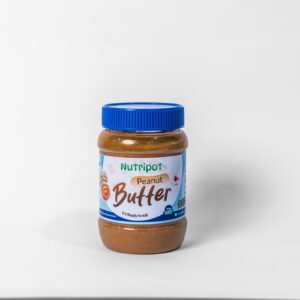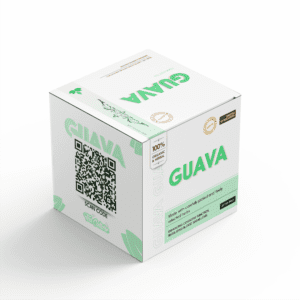In actuality, the term “Herbal Tea” is misleading. Originally, only infusions made from the Camellia sinensis tea plant were given the term “tea.” Thus, it became the name given to oolong, black, white, and green teas. To be grammatically and conceptually correct, the term Herbal Infusions would be a more appropriate term to describe herbal products gotten from herb plants.
I plan to discuss Herbal infusions in this article. If used regularly, how it can be used effectively in combating major health issues plaguing the Nigerian populace. This article addresses some of the many health challenges most Nigerians are facing because of malnutrition and poor habits. It also reveals how creating a healthy lifestyle like drinking herbal infusions can help resolve these health problems.
Herbal infusions have been used for thousands of years by cultures around the world to address a myriad of health issues. In Nigeria alone, these herbal infusions serve as a major treatment for varying illnesses, serving as a natural, and holistic response to the many ailments and diseases that plague the country. From malaria to cancer, herbal infusions can be used as an effective and beneficial form of self-care.
Like is the case in most developing countries, most Nigerians suffer from a diverse number of illnesses, ranging from severe coughs and colds, stomach pains, acute headaches, toothaches, constant fatigue, arthritis, high cholesterol, diabetes, weight loss, high blood pressure, and so on.
The solutions to these illnesses and more can be found in everyday plants and herbs around us, if only we know how to access this unrestricted medical resource surrounding us. The solution is right in front of us; we don’t need to look for it. Follow me on this journey to a healthier lifestyle.
Carbonated Beverage drinks are consumed daily by many Nigerian families, most of these drinks contain large amounts of sugar and artificial sweetener increasing the likelihood of diabetes and obesity in people. However, healthier alternatives in the form of herbs exist. Most people are however ignorant of the health benefits gotten from the intake of herbal drinks in the same manner tea is taken and why they need to create a lifestyle that promotes the consumption of herbal beverages.
Nigeria is blessed with an abundance of herbal plants rich in minerals, vitamins and other active ingredients that are phytochemical gold. It is the world’s fourth-largest producer of tea, which is just one of our many herbal beverages after China, India, and Kenya. In 2010, Nigeria produced about 36,000 metric tons of tea including herbal infusions.
The use of Herbal infusions is very popular among the Nigerian populace, with an estimated use of about 89 percent of adults drinking it regularly. According to a survey conducted by the Nigerian Institute of Social and Economic Research, herbal infusions account for approximately 65 percent of all drinks(tea) consumed in the country. The most popular Herbal infusions consumed in Nigeria include ginger tea, hibiscus tea, cinnamon tea, and lemongrass tea.
One would think with the statistically high usage of herbal infusions, Nigerians wouldn’t be plagued by illnesses like high blood pressure, diabetes etc. anymore. Despite the high intake of herbal infusions, most Nigerians are unaware of how to use them to their advantage. Even though these figures are outstanding, the lack of expertise regarding the use of these infusions seems to be doing more damage than good.
Does this mean Herbal infusion is not effective in the fight against most Non-Communicable Diseases? No, it is still the cheapest most effective alternative to synthesized drugs. By consuming herbal infusions alone, you can prevent a majority of the NCDs mentioned above and out there.
But why herbal infusions? Herbal infusions are a type of medicinal drink made by brewing herbs and spices in hot water. Herbal infusions are known and used for their many health benefits and as an alternative to regular tea and coffee. Common ingredients in herbal infusions include Moringa oleifera, bitter kola (Garcinia kola), bitter leaf (Vernonia amygdalina),Prunus Africana for prostate cancer, baobab (Adansonia digitata), ginger, lemongrass, and Hibiscus sabdariffa. They contain high levels of antioxidants and have numerous health benefits. Also, they are usually cheaper to acquire, and use and most of the time require no additive to use.
Why Should I Drink Herbal infusions? Drinking Herbal infusions has numerous health benefits. Herbal infusions contain antioxidant substances which can help protect your body from disease and ageing. They also contain anti-inflammatory substances that reduce inflammation, ease digestive discomfort, help you relax, and even improve your sleep. Herbal infusions are also naturally caffeine-free, making them a great choice for those who are sensitive to the effects of caffeine. For example, Moringa is a healthier alternative to Coffee, providing the same feel and supplying the body with the same nutritional value but without the side effects of caffeine.
For people suffering from skin-related illnesses, Herbal infusions work their magic. Herbal infusions can work on the skin in several ways. The antioxidants in Herbal infusions can help protect the skin from free radical damage, which can help reduce the appearance of wrinkles and age spots. The anti-inflammatory properties of Herbal infusions can help reduce inflammation and redness in the skin, while the natural astringent properties can help tighten pores and reduce oiliness. The tannins in Herbal infusions can help to treat blemishes and acne, while the flavonoids can help reduce the appearance of dark circles and puffiness. Herbal infusions can also be used as a toner or cleanser to refresh and revive the skin’s appearance.
However, taking one Herbal infusions bag does not instantly solve your health problem, like every habit to achieve the intended outcome, you must design your lifestyle around consistently taking in the herbal infusions. The key is to cultivate a culture around the consumption of Herbal infusions. Most people find it difficult to do this! This is often the challenge.
Developing a culture around the consumption of herbal infusions could begin with having a mini flask of Herbal infusions to go to work with, including herbal infusions in our breakfast and dinner meals.
What kind of Herbal infusions should I consume? I’ll recommend lemongrass teas, moringa teas, soursop teas, and the list goes on. I will suggest that you get the help of an expert on this to help guide you on how, when, and what you need to consume to help solve that health challenge.
Luckily, Wholeats Africa is a food and wellness firm invested and committed to producing healthier Nigerians, and one of her health programs is tagged Tea Culture.
Tea Culture is a program that takes into consideration all the circumstances that can make the use of herbal infusions ineffective or even have bad effects like overdose and inconsistent intake of herbal infusions.
The issue of overdose with the intake of herbal infusions is a very common problem as there is no volume or standard metric for the intake of the infusions like it is with synthesized drugs, considering this, Wholeats has packaged these infusions in easy-to-carry and uses tea bags.
As the team lead at Wholeats Africa, I’ve assisted both individuals and businesses in developing easy-to-maintain healthy habits, such as developing a tea culture. As I was doing this, I realized that the simplest way to accomplish this was to make them responsible for their choices and hold them accountable.
To address the issue of Inconsistent intake of Herbal infusions, Wholeats has a community of like-minded individuals to help each other achieve their health goals. Community members are provided with a customized hand-friendly mini flask that can be carried around.
Our Tea Culture program supports both Individual and Corporate needs
For more inquiries…….
About the Author
Oluwakemi Jeje is a nutrition enthusiast and serial entrepreneur. She is the founder of Wholeats Africa and Community Pot, a wellness and nutrition firm located in Lagos.
You can reach her through her mail:
ke******@gm***.com





